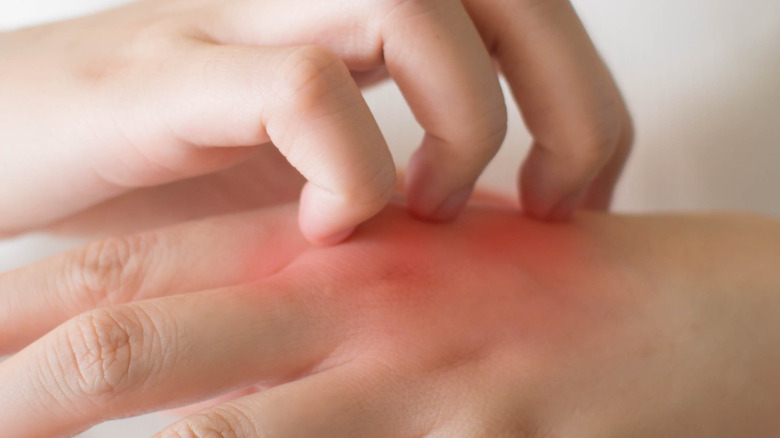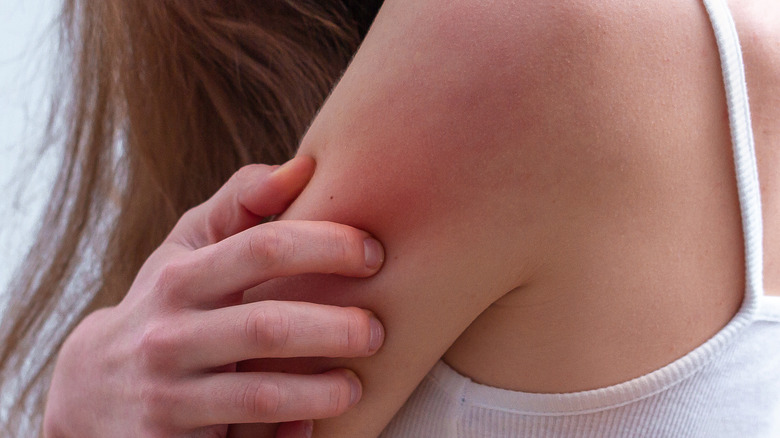What Contact Dermatitis On Your Skin Really Means
If you have ever had an itchy red rash after using a new soap or wearing some new jewelry, it is possible you had contact dermatitis. Contact dermatitis is skin inflammation that occurs when the body is exposed to an irritant or allergen. The rash is typically confined to the part of the body exposed to the substance, and it can be more severe for some people than others. While certain people may just experience mild redness, others might develop prominent blisters and significant swelling (per Merck Manual).
Contact dermatitis has a number of causes. Most often, it is triggered by a substance that's irritating to the skin. Thousands of potential irritants have been identified, but some of the most common include plants, fertilizers, pesticides, shampoos, bleach, detergents, solvents, and rubbing alcohol (per Mayo Clinic). You may also develop contact dermatitis after using certain soaps or perfumes, according to Merck Manual.
Some cases of contact dermatitis are triggered by allergic reactions
Allergic reactions happen when the immune system misinterprets a harmless substance as a threat (per American Academy of Allergy Asthma and Immunology). According to a 2006 study published by the Mayo Clinic, the most common allergens that trigger contact dermatitis include substances commonly found in jewelry and beauty products. Walk-in Dermatology notes that many jewelry reactions are in response to nickel, which is sometimes present in inexpensive jewelry. For some people, it can take repeated exposure to develop a reaction.
While contact dermatitis is certainly irritating, it is not life-threatening or contagious, according to the Mayo Clinic. Contact dermatitis should go away within a month when the culprit is avoided. Symptoms can be alleviated with anti-itch creams and cool, wet compresses. The Mayo Clinic advises seeing a doctor if the rash is sudden, severe, painful, widespread, or disruptive to daily life. Rashes that affect the genitals or face, or last longer than a few weeks, also warrant a visit to the doctor.


